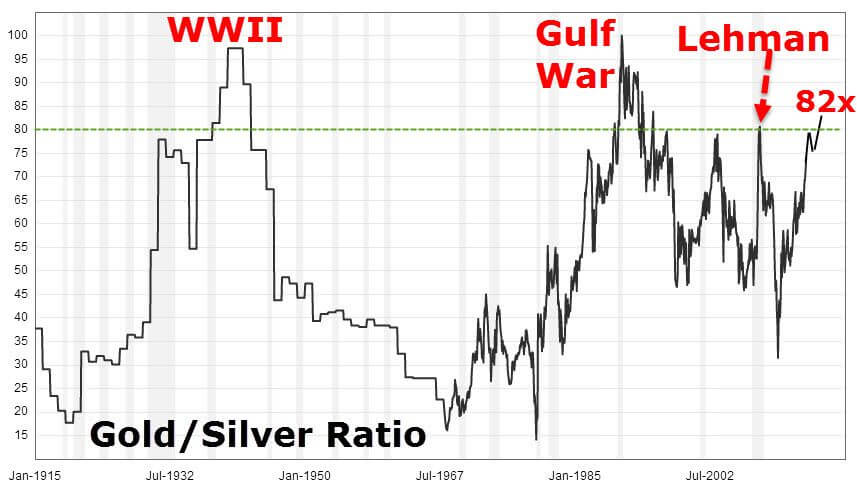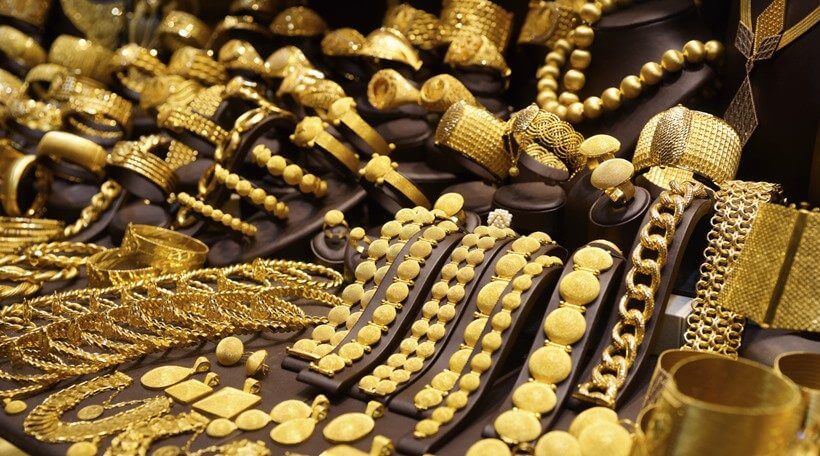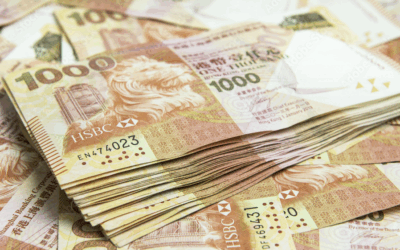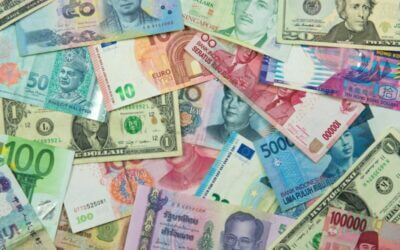Last updated October 30th, 2024.
Precious metals are often the go-to choice for investors who want to hedge themselves against inflation and currency risk. With that said, there are plenty of alternatives to gold.
You certainly won’t find any shortage of people talking about the benefits of (and trying to sell you!) gold bullion.
Gold prices do indeed have a weak correlation with stock returns. Precious metals have remained a storage of wealth for centuries. Likewise, gold does enjoy practical uses in manufacturing, medicine, and other industries.
Buying gold isn’t the only option for protecting your assets though – nor is it necessarily the best one for every type of investor.
Storage costs, buy/sell spreads, along with the fact that physical bullion doesn’t have cash flow makes gold a solid choice for wealth preservation. Yet at the same time, it’s not really an investment in the true sense of the word.
In no particular order, here are five investments that enjoy the positive attributes that gold does and fewer of its drawbacks.
We think they’re worth considering as alternatives to gold. Who says you can’t protect wealth while making money at the same time?
Silver Bullion
What’s better than gold? If you ask some people, they’d tell you that silver is an ideal substitute.
Don’t make the error of writing silver off as gold’s “cheaper cousin”. Silver has tons of practical uses and is less correlated with stocks as well.
Several thousand dollars’ worth of physical silver is much heavier and harder to store than gold. However, it also has superior upside potential and is arguably one of the most useful precious metals when it comes to industrial use.
Cell phones, solar panels, automobiles, and many other necessities for modern living use silver in their manufacturing process. Greater amounts of silver are required as earth’s middle class population continues to surge.
Most importantly, silver prices are cheaper relative to gold than they have been in a long time.
Silver bullion has better potential for capital appreciation while serving as a hedge against inflation too, which makes it a potential gold substitute.

Silver has tracked gold pretty closely over the long-term. Right now, the gold-to-silver price ratio is at around 82:1. That’s the highest since the late-1980s, which ranks silver among the most attractively valued precious metal you can buy.
Buying Rare Earth Elements
Like silver, gold, and other types of precious metals, rare earth elements are less correlated with other assets.
Rare elements aren’t conventional metals and are actually a misnomer in that most aren’t even exactly “rare”. Yet a major difference is that they are even more crucial to industry compared to more expensive metals such as gold and silver.
For example, we need scandium for many consumer products including televisions and energy efficient lights.
Lanthanum is meanwhile used to make telescopes, camera lenses, and also applications in oil refining. Yttrium is required for cancer treatment medicine and lasers.
Plenty of people are buying silver bars, gold jewelry, and even platinum. But few of them consider owning rare earth elements instead.
That’s probably because it’s a lot harder to find rare earth elements for sale, in practice. “One stop shops” where you can easily purchase, store, and sell through one company aren’t as common for rare earth elements.
However, another problem is that rare earth elements are far less liquid than precious metals. Gold and silver often come in bar or coin form, but you won’t exactly find a spot market or easily quotable prices for scandium.
There’s also good news though. Rare earth metals are, for the most part, in limited supply and should see rising demand over time.
You have a variety of different ones to choose from, and many are worth considering as a gold alternative. Just don’t plan on being able to sell rare earth metals easily.
Frontier Market Investments
Frontier markets are fast-growing, developing countries which rely less on foreign investment for their growth.
See, our world is now interconnected. You can find multinational businesses such as Starbucks and IKEA in almost every corner of the globe from Thailand to Brazil.
Because of this, the rest of the world gets sick when the United States, Europe, or China enters recession and their companies can no longer afford overseas expansion.
Frontier markets are often exceptions to this rule. Cambodia, as an example, hasn’t suffered a recession for more than two decades.
It skipped the Asian Financial Crisis of 1997, the tech bubble in the early 2000s, and the Global Recession of 2008. This was all while averaging over 7% GDP growth annually.
These high-growth markets don’t depend on McDonald’s for because they don’t even have any McDonald’s.
“Frontier markets” aren’t an asset class in themselves. Regardless, consider choosing a unique uncorrelated investment whether you’re buying stocks, property, or something different.
Alternatively, try owning another asset on our list of gold alternatives, but doing so in a frontier market, to achieve maximum results.
Offshore Real Estate and Land
Thousands of real estate markets exist in the world. For example, Bangkok’s property market has entirely different dynamics, drivers, and growth prospects than Boston’s or Berlin’s.
As such, foreign property usually is uncorrelated to stocks and real estate in your home nation. You also gain the benefit of cash flow, and can generate income through leasing it rather than letting your assets sit in a safe.
Furthermore, offshore real estate is denominated in terms of a different currency. Purchasing property in economically strong jurisdictions such as Singapore or South Korea is a great way to diversify away from the dollar or euro.
International property is one of very few things your government can never confiscate as well. The courts, taxman, and others may be able to garnish your wages, bank accounts, or perhaps even precious metals.
Similar to physical silver or gold bars though, nobody will take away your condo or house in a foreign country.
International Private Equity
Private placements come in a variety of forms. You’ll find almost no limit to the sheer number of startups looking for capital and selling shares privately.
Some of them are duds, while others are a good investment and have strong potential for profit no matter the economic climate.
Silicon Valley is the global epicenter of private equity and venture capital. Nonetheless, and like most sectors in the United States, the market is oversaturated. Seed capital is going to startups that barely have a chance to turn a profit.
That’s because institutional investors are more concerned with discovering the next Facebook or Uber than actually investing. Their strategy is spreading capital across as many companies as they possibly can.
Venture capital firms know that most of their investments will fail. Yet a small percent of them go onward to become multi-billion dollar success stories. They substantially raise the average, helping VCs recoup their losses and then some.
It’s a rather solid tactic if you can afford millions of dollars to spread across dozens of different startups. For everyone else, we’re only looking for winners.
Asia has lots of them. From innovative fintech firms to e-commerce businesses, Asian startups generally have fairer valuations, less competition, and greater chances of success than their western counterparts.
Consider These Gold Alternatives
You might disagree with our opinion that these five investments are better alternatives to gold. Indeed, gold will continue performing differently than other type of assets.
The purpose of this article is to present options – we aren’t saying you shouldn’t buy gold. On the contrary, it’s absolutely worth having some amount of exposure to gold.
Either way, our point remains: there are countless methods to diversify your assets and safeguard a portfolio against inflation, and it doesn’t have to be buying gold!
From offshore property to platinum coins, you have plenty of gold alternatives. Your options to hedge against inflation aren’t limited to the five items on our list either.
The entire world is your oyster when you’re an offshore investor. Diversification is where safety truly comes from, it’s not necessary to “pick a side” by restricting yourself to one asset.
Skip the Next Western Recession
Learn the best places to invest - and where to avoid - by downloading our free Investment Cheat Sheet.







